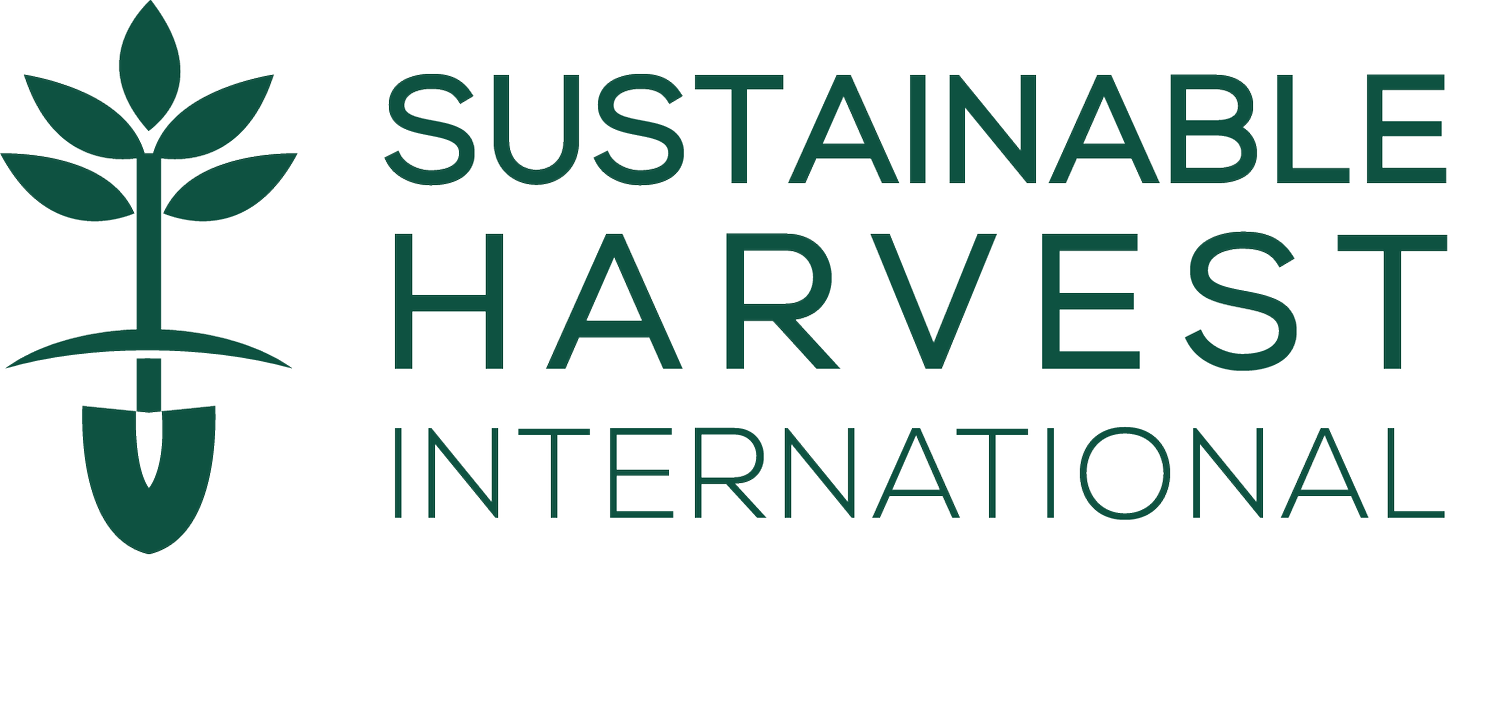Deforestation isn’t just about losing trees—it’s about losing entire ecosystems. Forests are home to complex networks of plants, animals, and fungi that severely struggle when their habitats disappear. According to the Food and Agriculture Organization of the United Nations (FAO), agriculture causes 90% of global deforestation. Thankfully, there’s hope through sustainable farming.
Conventional agricultural practices—such as slash-and-burn farming—intentionally clear forests to make way for farmland, but this approach comes at a cost. For farmers, it depletes soil health and fertility, reducing food productivity. For the planet, it means the loss of forests that sustain rich biodiversity. Rather than clearing forests for potential temporary gains, farmers can adopt sustainable methods that preserve the land and support their livelihoods for years to come.
Children of Honduran farmers in SHI’s program participate in a fruit tree planting activity at their school, led by SHI staff.
Through Sustainable Harvest International’s (SHI) program, farmers learn how to cultivate food in ways that protect and regenerate forests. They plant trees in previously degraded areas, harnessing their benefits—like improved water retention, wind protection, and soil enrichment—to boost food production. Over the past 28 years, SHI farmers have been at the heart of reforestation efforts, helping degraded ecosystems come back to life.
You Can Help Farmers Restore Forests
The Dangers of Deforestation
Trees are vital to maintaining Earth’s natural cycles—especially the water and carbon cycles that regulate our global climate. When forests are cleared, these cycles are disrupted, with consequences that reach far beyond the site of deforestation. A key part of the carbon cycle is carbon drawdown—the process by which healthy, rooted trees absorb carbon dioxide from the atmosphere. In doing so, they help mitigate climate change. But when trees are logged or burned, that carbon is released back into the air, accelerating global warming and destabilizing ecosystems.
Despite overwhelming evidence of the critical role of forests, some of the most common agricultural practices continue to degrade them. Regenerative farming methods, however, offer a promising path forward.
SHI’s Solutions
Stopping deforestation is critical—but it’s only part of the solution. Much of the world’s land has already been degraded, and it can take decades or longer for these landscapes to recover on their own. Another part of the solution is to reverse the damage. SHI does this through two main methods: reforestation and agroforestry.
Farmer in SHI’s Panama program, Enrique González, has planted coffee and plantains with the help of his SHI Field Trainer.
Reforestation targets areas that were deforested and left abandoned. These landscapes struggle to recover naturally, but with the care and effort of SHI farmers, ecosystems bounce back. SHI farmers replant native trees and protect fragile wildlife habitats. Farmers are motivated to lead reforestation efforts when they notice the increased soil health on their farms.
Agroforestry involves planting trees directly on family farms. Trees line the perimeter of farms, providing shade to crops and protection from strong winds, rain, and sun. SHI’s partnering farmers plant food forests, balancing human and planetary needs. By working with nature, rather than against it, SHI farmers regenerate forests while providing for their families and communities. Trees are purposefully interplanted with crops to restore soil fertility under an agroforestry food system, and SHI farmers know firsthand this method yields to larger harvests.
The agroecological principles we teach empower farmers to nourish their families while preserving the environment.
Chan You Believe It?
Isabella and Antonio Chan, two SHI partner farmers from Belize, have transformed their land, and their lives, through agroforestry. With guidance from an SHI Field Trainer, the Chans turned their struggling farm, once unable to grow enough food, into one of the most productive in their community.
Farmer in SHI’s Belize program, Antonio Chan, stands proudly in front of the trees he planted years ago, and are now much taller than him!
By planting a variety of trees alongside their crops, they improved the soil’s health and significantly boosted their harvests. Their field trainer helped them choose the right tree species for their land, ensuring each one played a part in enriching the soil with organic matter and deterring pests. Their farm, like other SHI farms, mimics natural ecosystems. The resulting biodiversity makes the farm more resilient to disease and pests, reducing its need for chemical inputs and improving long-term viability.
“I now believe what you say is true. My farm looks better, and I will have something to harvest in the future.”






